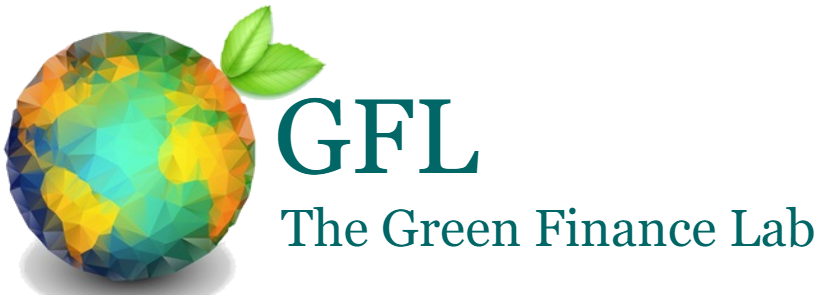DEVELOPING PROTOTYPES FOR THE NEXT GENERATION OF SRI PRODUCTS
HOW DOES THE DEVELOPMENT OF NEW PRODUCT IDEAS AND THEIR IMPLEMENTATION PROCESSES WORK?
It is widely recognised that today's financial system does not actively reward long-term thinking. Often, it can actually work against efforts to build a sustainable economy.
The GFL works long term with leading investors, banks, development finance institutions, foundations, governments, innovators and intermediaries from across Africa, Asia and Latin America, developing solutions to challenges firms cannot tackle alone and impact both policy and market practice. Our members jointly address major financing challenges that face eco-inclusive enterprises and sustainable-smart infrastructure investment in developing and emerging economies. GFL members and practioners are empowered to turn challenges into solutions as they develop tangible and robust prototypes that innovate the next generation of SRI products.
The labs are hands-on and engage participants in output-oriented exchanges which facilitate peer learning between participants from different organisations, countries and sectors, strengthen the product implementation capacity of lab participants and build a network of partners to launch the SRI products. Participants pool their expertise to prototype SRI products which drive investment in sustainable-smart solutions and improve responsible investment, refine these prototypes and mobilise partnerships to successfully launch the prototypes in target markets. To identify the most promising instruments ideas submitted are assessed against the GFL criteria as well as the work stream and region priorities.
Members and practitioners are organised throughout the process into product development groups who lead prototype design, refinement and implementation. The product development groups offer a close-knit forum for face-to-face and digital knowledge exchange between participating members and practitioners.
A complete Lab Cycle operates over the course of a 12-month period, and the works are divided into four phases:
- 1 | KICK-OFF LAB
- 2 | PRODUCT REFINEMENT
- 3 | TRANSITION LAB
- 4 | DELIVER SRI INNOVATIVE PRODUCTS
1 | KICK-OFF LAB
Co-create SRI product prototypes by applying the expertise of members and practitioners from diverse sectors and backgrounds and GFL's design-thinking tools and collaborative facilitation methods.
The initial Kick-Off Lab challenges mebers and practitioners to jointly prototype innovative and context-relevant SRI products based on the identification of key challenges. GFL facilitates the co-creation process by using our prototyping tools and interactive moderation approach which enlists the insights and feedback of peers across product development groups. Members and practitioners come away from the Kick-Off Lab having transformed major environmental, social and governance challenges into opportunities for SRI innovation. We also yearly open calls for innovative SRI solutions. Selected ideas benefit from analysis, stress-testing, and guidance from experts and investors.
2 | PRODUCT REFINEMENT
Refine SRI product prototype and mobilise resources at product development group-level.
Each individual product development group further refines its SRI prototype and prepares the product for implementation through group-level meetings with the support of GFL tools and facilitation. During this phase, key partners are identified and resources are mobilised to launch the product following the Transition Lab.
Key partners are selected from a wide variety of organisations including microfinance institutions, commercial banks, development finance institutions, impact investors, philanthropic institutions, NGOs with a strong finance focus, corporate social investors, venture capital and angel investors, government authorities.
3 | TRANSITION LAB
Incorporate feedback on the SRI product prototype, roadmap product scale-up and fortify partnerships for the next stages of product development and launch.
The Transition Lab brings back together all members and practitioners to showcase their prototypes and share their refinement and implementation milestones. This follow-up Lab emphasises in-depth feedback and road-mapping for the subsequent stages of product piloting.
During this phase, members, practitioners and key partners may make decisions with the express rationale to aid the analytical process and progress the concept development. This could include, for example, a target country or region to define the boundary of the analysis or a change in design of the instrument to mitigate identified risks.
The final outputs from the Transition Lab analytical process may therefore vary from the original product.
4 | DELIVER SRI INNOVATIVE PRODUCTS
Circulate final SRI product concept note and bring product to market in order to drive forward sustainable and responsible economy solutions in the finance sector.
After the Transition Lab, GFL supports product development groups to finalise market analysis and product concept notes for use in approaching potential investors and partners. These concept notes serve the basis for the initial stages of product launch and piloting. From here, practitioners are equipped with the knowledge and partnerships required to deliver climate finance products that offer sustainable and responsible economy solutions.
Finally, the GFL Secretariat will provide light-touch support to key partners and other stakeholders on an ongoing basis following endorsement, which will include:
1 - Monitoring to ensure progress towards milestones
- 2 – 3 check-ins per year.
2 - Lesson sharing & reporting
- Through white papers, webinar, or blogs.
CORE TOPICS

ERIC AWINE
GFL SRI Product Prototyping Specialist
Our GFL SRI Product Prototyping specialist is available to consult. Please contact us if you are a SRI product-designer or practitioner interested in joining in the GFL SRI Product Prototyping process.

